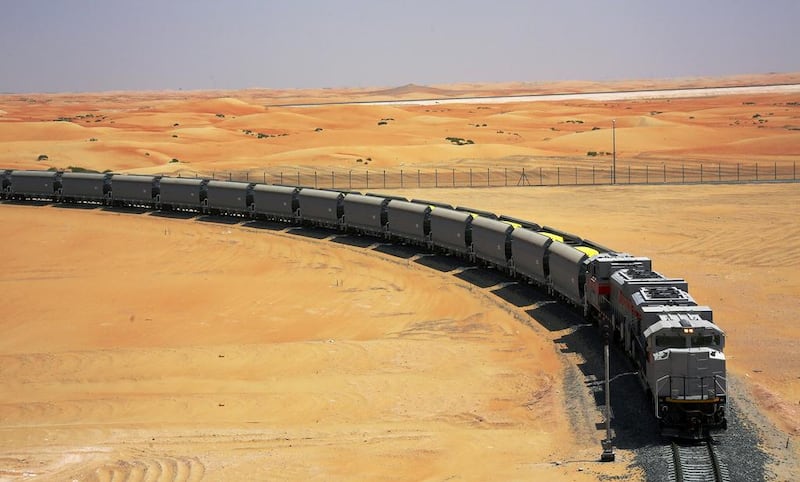Proposals for a new railway bill have raised hopes that plans to expand the UAE’s existing network could soon be back on track.
Following Wednesday’s Cabinet Meeting, Sheikh Mohammed bin Rashid, Vice President of the UAE and Ruler of Dubai, tweeted that there had been discussions for new legislation to cover the establishment, operation and safety of railways.
The legislation would promote mobility options for the public, Sheikh Mohammed tweeted.
In a series of tweets, Sheikh Mohammed also said a new strategy adopted in agreement with the United Nations would focus on innovation in the areas of health, future skills, the environment, water and space technology.
كما ناقشنا اليوم مشروع قانون لتنظيم السكك الحديدية، والذي سيعمل على ضمان إنشاء وتشغيل وسلامة السكك الحديدية في الدولة وتعزيز خيارات التنقل للسكان، واعتمدنا اتفاقية مع الأمم المتحدة بشأن تنظيم المنتدى العالمي للبيانات، واستضافة الدولة له في 2018. pic.twitter.com/kjbfbdnefZ
— HH Sheikh Mohammed (@HHShkMohd) February 28, 2018
الاستراتيجية الجديدة ستركز على الابتكار في مجالات جودة الصحة والمعيشة والتنقل ومهارات المستقبل والبيئة والمياه وتطوير تكنولوجيا صناعات الفضاء .. هدفنا تغيير نمط التفكير في القطاعين الحكومي والخاص نحو ابتكار حلول للمستقبل
— HH Sheikh Mohammed (@HHShkMohd) February 28, 2018
Etihad Rail currently operates a freight service largely for transporting sulphur from the oil fields of Shah and Habshan to the port of Ruwais.
The line, which opened in 2013, was intended to be part of a much larger network that would cover the whole country, and eventually link to Saudi Arabia and other GCC members.
Two years ago. Etihad Rail announced it was cancelling the next stage of the railway, a 628 kilometre freight line to Dubai and Al Ain, and extending services from Ruwais to Ghwefat on the Saudi border.
The final section would have been 279 km section to the Northern Emirates, including Ras Al Khaimah and Fujairah. Although designed for freight, there was speculation the lines in the future could also carry passenger trains.
In January 2016, Etihad Rail announced it was suspending the tendering process for phase two, to “assess strategic priorities.” It also announced job cuts for what it called operational efficiencies.
There is growing speculation that the project may soon be reactivated. In November, Meed magazine reported that Etihad Rail was reengaging with stakeholders to make minor revisions to the network as originally planned.
Last month, Meed also reported that the board of Etihad Rail had been restructured, with new members including Mattar Mohammed Al Tayer, the chairman of the Roads and Transport Authority in Dubai, and headed by Sheikh Dhiyab bin Mohamed bin Zayed Al Nahyan.
Etihad Rail is intended to form part of the much larger Gulf Railway, with each member of the GCC responsible for building their own section of the network.
The most developed is the Saudi Railway Company, which includes a north-south freight line and passenger services between Riyadh and Qurayyat.
However, several other GCC countries have said they will wait for other members before starting construction.







